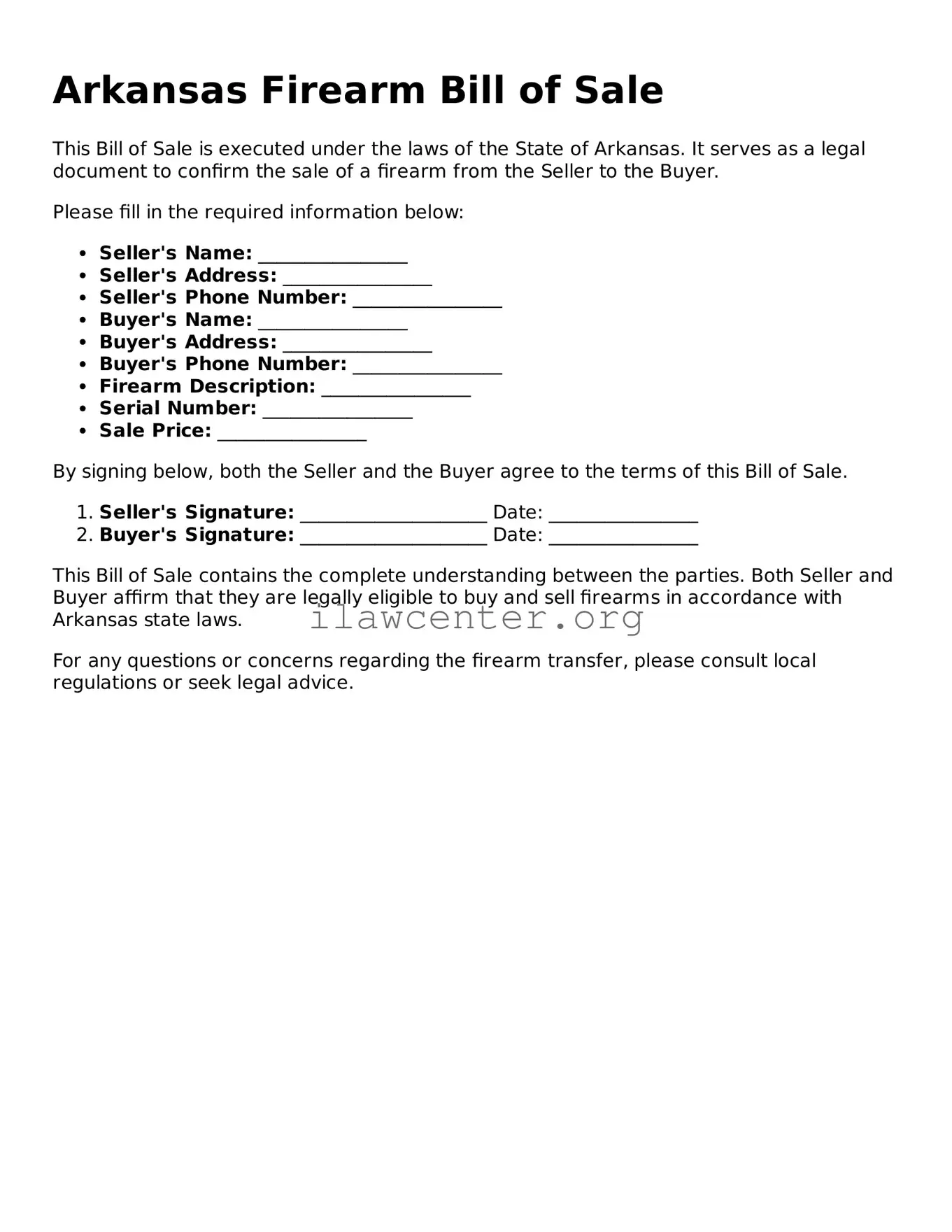Instructions on Utilizing Arkansas Firearm Bill of Sale
Filling out the Arkansas Firearm Bill of Sale form is an essential step for documenting the sale or transfer of a firearm. Accurate completion of this form helps ensure both parties are protected and that the transaction is clearly recorded. Below are the steps to guide you through the process.
- Obtain the Form: Access the Arkansas Firearm Bill of Sale form from a reliable source, such as a state website or a legal office.
- Seller Information: Fill in the full name, address, and contact information of the seller. Ensure that all details are accurate and complete.
- Buyer Information: Enter the full name, address, and contact number of the buyer. Double-check for any errors.
- Firearm Description: Provide detailed information about the firearm. Include the make, model, caliber, and serial number. This information is vital for accurate identification.
- Sale Price: Clearly state the agreed-upon price for the firearm. This should reflect the total amount exchanged during the transaction.
- Date of Sale: Enter the date when the transaction takes place. This helps establish a timeline for the sale.
- Signatures: Both parties must sign the document. The seller and buyer should sign in the designated spaces. This step confirms that both individuals agree to the terms of the sale.
- Witness (if applicable): If required, have a witness sign the form. This may enhance the document’s reliability.
After completing the form, keep copies for both the buyer and seller. Ideally, both parties should retain their copies for record-keeping and potential future reference.
